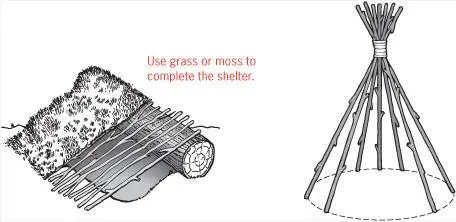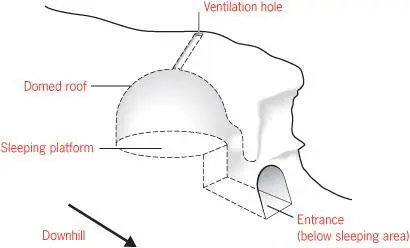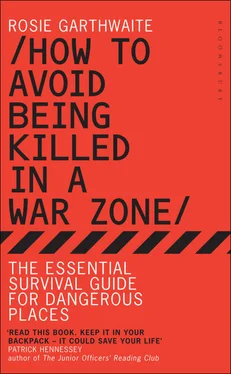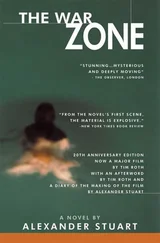The Mooncup ®is a great alternative to tampons and pads, and is endorsed by several seasoned travellers of my acquaintance. This reusable menstrual cup is made of soft, non-latex, medical-grade silicone and is inserted in the vagina a bit lower than a tampon. Once in place, it collects many hours of menstrual fluid, which can simply be emptied into toilets. It is easily disinfected with boiling water.
Proponents of the Mooncup ®argue that it is more economical, comfortable and environmentally friendly than any other method. If you’re new to it, give it a trial run before departure. It can be bought only online from www.mooncup.co.ukor www.mooncup.comin the USA.
If you are still not sure about anything you have read here, you can find further information in The Oxford Handbook of Genitourinary Medicine, HIV and AIDS (OUP, 2005). There are also several useful websites:
GP Notebook: www.gpnotebook.com
NHS Choices: www.nhs.uk
Patient UK: www.patient.co.uk
WHQW: www.womhealth.org.au
Some attention is good. Flirting is fantastic, in all sorts of ways, not least for getting things you might not otherwise have had access to. It might even get you the occasional free drink. Oops! But it can also lead to problems. Where sexual appetites are high or long unsatisfied, or if you are the only girl in a team of men, flirting can be misread as interest. Even worse, it can shout ‘I am here for the taking’ to the wrong sort of man.
Sometimes there is nothing you can do about unwanted attention. There’s no protecting yourself from being sexually harassed by a man who wants to get you into bed, or from a man who does not respect you. But in the highly charged world you currently find yourself in, it’s a good idea to stay within the safe, anodyne zones of flirtation. In a war zone, trust me, that means barely anywhere.
Samantha Bolton observes: ‘Flirtation can be useful for getting onto supposedly full planes, etc. Tell the rebels or whoever you are negotiating with that you are married. Carry a ring that can work as a wedding ring when required.’
Sadly, rape is often a weapon of war, and is not restricted just to the battlefield. It slips onto the streets, into the villages and, for many women, into their homes.
As a visitor, you can try to avoid it by not walking into dodgy areas, by not drawing attention to yourself with your behaviour or jewellery. If you get a bad feeling, run – and remember the self-defence advice on Self-Defence Moves. A surprise, quick and targeted attack on your attacker could well scare him off.
Acting stupid, intentionally or otherwise, can sometimes get you far.
Mary O’Shea
I got through the stress and the smell of the Indonesian tsunami with a combination of Xanax and Tiger Balm.
Marc Laban
This book is notfor people who are setting off into the jungle with nothing but a penknife and two sticks to rub together. But all of us have found ourselves out of our comfort zone at one point or another, and this chapter should help you to win the battle against nature.
It is amazing what a little effort in the short term can achieve in the long run. In the army it was drummed into me that it was ‘easy to be uncomfortable’. In other words, they taught us how to be as comfortable as possible, such as how to bunker down in icy conditions and how to conserve water in hot conditions.
It was in the army that I learnt how to make a mobile refrigerator in a desert. Simply, wet a sock, pop your hot can of Coke or bottle of water inside and let the wind blow against it. The evaporation will cool your drink by a couple of degrees. Do it a few times and you have something that is far enough below body temperature to be refreshing. Genius!
Assuming you have been dropped in the middle of nowhere with little or no kit, your four top priorities will be:
1. Finding a source of water
If there is no stream or lake at hand, head for lowlands, such as a valley.
• Look for pools in rocks. If the water is too shallow to scoop up in your hands, use your clothes to soak up the water, then wring them out into your mouth or a cup, or suck on them to get the water.
• If you have the right tools, dig down until you find water.
• Look for where animals are headed – there will be water nearby. And don’t forget to collect rainwater.
• Try plants for water. Test them first and avoid any with milky sap as it could be poisonous. Even in the driest of deserts you can find water in cactus plants, or even come across prickly pears (see Safe to Eat).
Warning:Ration whatever water you have. Don’t drink urine or salt water, and boil all the water you find to drink: diarrhoea will only dehydrate you further. (see making fireand sterilizing water.)
2. Finding food
There is a whole chapter devoted to the subject of finding food (see here).
3. Finding shelter
Maybe you’ll be lucky and find something ideal for sheltering you from the elements, such as a cave. If not, it might be necessary to make a shelter.
• Use a fallen log as the topside of a roof, using long sticks to make the structure – one end on the log, the other on the ground – covered in mud or leaves.
• Make a wigwam by binding saplings or sticks together and covering it with plastic sheeting, if you have some, or branches if you don’t.

• Dig a hole in the ground and cover it with plastic sheeting weighted at the corners with rocks.
• In snowy conditions, dig a snow hole in packed snow and in open, flat areas to avoid avalanches. Use a snowdrift if there is one big enough (see below).

Use every resource you have to hand, plus a little strength and imagination.
Warning:If you light a fire inside your shelter (you can even do this in a snow hole), make sure there is ventilation for the smoke to escape so that you don’t suffer carbon monoxide poisoning or breathing problems.
4. Finding rescue or civilization
• If people know where you are, stay put. If you had a car or plane crash, always stay with the wreckage – this makes it easier for rescuers to find you.
• If no one has a clue that you are even missing, let alone where you were going, you need to move yourself towards civilization. Or find a spot where you can signal rescuers using smoky fires or reflection (if you’re lucky enough to have a mirror, glass or space blanket).
• If you set off on foot, make sure you’re not walking around in circles. Take a bearing on a landmark in the distance and stick to it. If there are no landmarks in sight, you are probably better staying still and conserving your water, unless there is no hope at all of rescue.
• A good tip is to follow rivers downhill as civilization is likely to be found at some point along the way. Also, the river will be a ready source of water.
There are a few benefits to living in a desert as I do in Doha. One of them is warmth – I hate being cold. My friends look to me like a canary for a warning of gathering frost. When I start shivering inside my carefully chosen five layers of ultimate manmade materials, they put on their jackets. I don’t mind lying under a duvet or in front of a fire with a gale blowing outside, or trekking through the snow to a warm restaurant. But if I am cold and I can see no end to it, I become grumpy and miserable. Not great company.
Читать дальше






![Джонатан Димблби - Barbarossa - How Hitler Lost the War [calibre]](/books/385421/dzhonatan-dimblbi-barbarossa-how-hitler-lost-the-w-thumb.webp)







